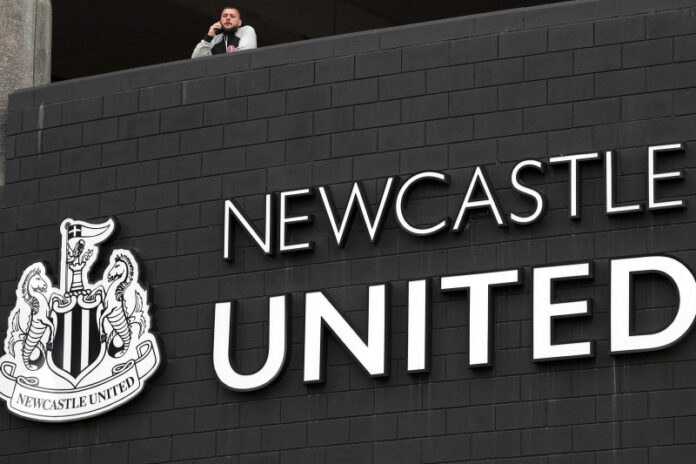The dictionary definition of the word “chagrin” is “annoyance or distress at having failed or been humiliated.” That just about sums up the football clubs that comprise the English Premier League.
“Spite” — “a desire to hurt, annoy or offend someone” — would also apply to the 18 clubs that voted this week to block “related party transactions” in the 20-strong league, meaning that none of them can do lucrative financial deals with organizations that are deemed to be connected with them.
Only two clubs did not vote for the ban, which is set to last for one month but can be extended by another meeting. Manchester City, which is having its own battle with the Premier League over alleged financial misdemeanors, decided to abstain.
And Newcastle United, the only one to vote against. Although the ban is applicable to all 20 clubs, it does not take a genius to work out which one was the intended target.
A couple of weeks ago, Newcastle became, on paper, the richest club in the world, following the GBP300 million takeover by a consortium led by Saudi Arabia’s Public Investment Fund. The PIF has about $500 billion of assets under its management, and the consortium which it leads — along with minority holders Amanda Staveley and the Reubens Brothers — has pledged an additional GBP250m will be injected into the club and the local community.
The ban is plainly intended to prevent Saudi Arabian entities putting significant cash into the club, in the form of player signings or big-name sponsorship and investment, such as in-stadium advertising and a badly needed new training facility.
Although 18 clubs voted for the ban, it was driven by the bigger clubs, led — it appears — by Tottenham Hotspur and egged on by Manchester United and Liverpool. Two other Big Six clubs, Chelsea and Arsenal, also voted for it.
It is not as if these clubs have suddenly become beacons of financial righteousness. Given the identity of their owners — Russian and American entrepreneurs — it would be very surprising if they were suddenly taking a stance against sharp financial practice.
Any suggestion that the ban is motivated by concern over alleged human rights issues is just plain laughable.
The morality of the Big Six can best be judged by the fiasco earlier this year when they tried to organize a breakaway European “super league,” which was quickly and rightly shot down by an alliance of fans, many players, and the UK government. The Big Six are not people who act out of altruism.
What they are really worried about is the threat of a new force in English football that would challenge the cozy set-up whereby the Big Six mostly call the shots on important issues of the business side of the game, such as broadcast TV rights or big sponsorships.
A newly resourced football club in Newcastle would be exactly that — a new powerhouse in the northeast of England, challenging the traditional hubs in London and the northwest. They — and especially Tottenham, whose place in the Big Six is tenuous to say the least — are terrified of losing their grip on the game, on and off the pitch.
People close to the new Newcastle set-up were not particularly worried when news of the ban broke. For one thing, Newcastle was run in such a miserly way under the Mike Ashley regime that there is still significant scope for new investment even under the existing rules, should Saudi Arabia wish to pursue that line. Up to GBP150 million could probably be spent pretty rapidly under financial fair play rules.
The ban is only for a month anyway, and any attempt to extend it or make it permanent would be sure to provoke prolonged legal action on grounds of anti-competitiveness. The Premier League does not have a good track record in legal actions against Newcastle.
Having said all that, it is a good thing for all clubs to adhere to rules on financial fair play that seek to make a level playing field in the game.
But this is not the way to do it. Singling out Newcastle is vindictive, petty and spiteful, motivated by pure chagrin.

